#Elkanah
Text
1 Samuel 2: Hannah Rejoices In Her Prayer To God
1 Then Hannah prayed and said:
“My heart rejoices in the Lord;
in the Lord my horn is lifted high.
My mouth boasts over my enemies,
for I delight in your deliverance.
2 “There is no one holy like the Lord;
there is no one besides you;
there is no Rock like our God.
3 “Do not keep talking so proudly
or let your mouth speak such arrogance,
for the Lord is a God who knows,
and by him deeds are weighed.
4 “The bows of the warriors are broken,
but those who stumbled are armed with strength.
5 Those who were full hire themselves out for food,
but those who were hungry are hungry no more.
She who was barren has borne seven children,
but she who has had many sons pines away.
6 “The Lord brings death and makes alive;
he brings down to the grave and raises up.
7 The Lord sends poverty and wealth;
he humbles and he exalts.
8 He raises the poor from the dust
and lifts the needy from the ash heap;
he seats them with princes
and has them inherit a throne of honor.
“For the foundations of the earth are the Lord’s;
on them he has set the world.
9 He will guard the feet of his faithful servants,
but the wicked will be silenced in the place of darkness.
“It is not by strength that one prevails;
10 those who oppose the Lord will be broken.
The Most High will thunder from heaven;
the Lord will judge the ends of the earth.
“He will give strength to his king
and exalt the horn of his anointed.”
11 Then Elkanah went home to Ramah, but the boy ministered before the Lord under Eli the priest.
Eli’s Wicked Sons
12 Eli’s sons were scoundrels; they had no regard for the Lord.
13 Now it was the practice of the priests that, whenever any of the people offered a sacrifice, the priest’s servant would come with a three-pronged fork in his hand while the meat was being boiled
14 and would plunge the fork into the pan or kettle or caldron or pot. Whatever the fork brought up the priest would take for himself. This is how they treated all the Israelites who came to Shiloh.
15 But even before the fat was burned, the priest’s servant would come and say to the person who was sacrificing, “Give the priest some meat to roast; he won’t accept boiled meat from you, but only raw.”
16 If the person said to him, “Let the fat be burned first, and then take whatever you want,” the servant would answer, “No, hand it over now; if you don’t, I’ll take it by force.”
17 This sin of the young men was very great in the Lord’s sight, for they were treating the Lord’s offering with contempt.
18 But Samuel was ministering before the Lord—a boy wearing a linen ephod.
19 Each year his mother made him a little robe and took it to him when she went up with her husband to offer the annual sacrifice.
20 Eli would bless Elkanah and his wife, saying, “May the Lord give you children by this woman to take the place of the one she prayed for and gave to the Lord.” Then they would go home.
21 And the Lord was gracious to Hannah; she gave birth to three sons and two daughters. Meanwhile, the boy Samuel grew up in the presence of the Lord.
22 Now Eli, who was very old, heard about everything his sons were doing to all Israel and how they slept with the women who served at the entrance to the tent of meeting.
23 So he said to them, “Why do you do such things? I hear from all the people about these wicked deeds of yours.
24 No, my sons; the report I hear spreading among the Lord’s people is not good.
25 If one person sins against another, God may mediate for the offender; but if anyone sins against the Lord, who will intercede for them?” His sons, however, did not listen to their father’s rebuke, for it was the Lord’s will to put them to death.
26 And the boy Samuel continued to grow in stature and in favor with the Lord and with people.
Prophecy Against the House of Eli
27 Now a man of God came to Eli and said to him, “This is what the Lord says: ‘Did I not clearly reveal myself to your ancestor’s family when they were in Egypt under Pharaoh?
28 I chose your ancestor out of all the tribes of Israel to be my priest, to go up to my altar, to burn incense, and to wear an ephod in my presence. I also gave your ancestor’s family all the food offerings presented by the Israelites.
29 Why do you scorn my sacrifice and offering that I prescribed for my dwelling? Why do you honor your sons more than me by fattening yourselves on the choice parts of every offering made by my people Israel?’
30 “Therefore the Lord, the God of Israel, declares: ‘I promised that members of your family would minister before me forever.’ But now the Lord declares: ‘Far be it from me! Those who honor me I will honor, but those who despise me will be disdained.
31 The time is coming when I will cut short your strength and the strength of your priestly house, so that no one in it will reach old age,
32 and you will see distress in my dwelling. Although good will be done to Israel, no one in your family line will ever reach old age.
33 Every one of you that I do not cut off from serving at my altar I will spare only to destroy your sight and sap your strength, and all your descendants will die in the prime of life.
34 “‘And what happens to your two sons, Hophni and Phinehas, will be a sign to you—they will both die on the same day.
35 I will raise up for myself a faithful priest, who will do according to what is in my heart and mind. I will firmly establish his priestly house, and they will minister before my anointed one always.
36 Then everyone left in your family line will come and bow down before him for a piece of silver and a loaf of bread and plead, “Appoint me to some priestly office so I can have food to eat.”’”
#Lord God Jehovah#Holy Bible#1 Samuel ch.2#Samuel#Hanna#Eli#Israelites#Prayer#Abilities#Foundation#Sons#Wicked#Disrespecting#Offerings#Contempt#Elkanah#Hophni#Phinehas#Promise#Death#Raise Up#Priest#Obedient#Completely
0 notes
Text
Delivered, Dedicated, and Destined
21 The man Elkanah and all his house went up to offer to the Lord the yearly sacrifice and to pay his vow. 22 But Hannah did not go up, for she said to her husband, “As soon as the child is weaned, I will bring him, so that he may appear in the presence of the Lord and dwell there forever.” 23 Elkanah her husband said to her, “Do what seems best to you; wait until you have weaned him; only, may…
View On WordPress
#1 Samuel#1 Samuel 1#atonement#conceived#Elkanah#God#God answered#Hannah#I swear#Israel#miracle#Nazirite vow#power#Samuel#the presence of the Lord#vow
0 notes
Text
The rise of the monarchy in Israel begins with the story of Samuel.
0 notes
Text

help i am being perceived
13 notes
·
View notes
Photo
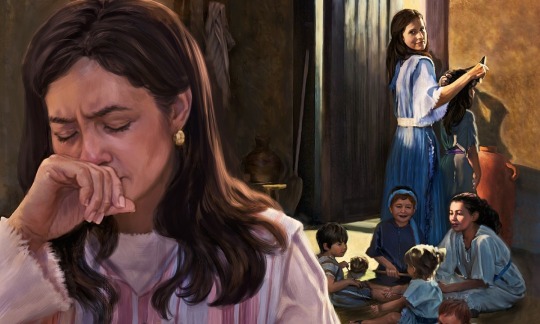
Elkanah and His Wives
1 And there was a certain man of Ramathayim Tsophim, of the mountains of Ephrayim, and his name was Elqanah son of Yeroḥam, son of Elihu, son of Tohu, son of Tsuph, an Ephrayimite.
2 And he had two wives, the name of one was Ḥannah, and the name of the other Peninnah. And Peninnah had children, but Ḥannah had no children.
3 Now this man went up from his city year by year to worship and to slaughter to יהוה of hosts in Shiloh. And the two sons of Ěli, Ḥophni and Pineḥas, the priests of יהוה, were there.
4 And when the day came for Elqanah to make an offering, he gave portions to Peninnah his wife and to all her sons and daughters,
5 but, although he loved Ḥannah, he gave only one portion to Ḥannah, because יהוה had shut up her womb.
6 Moreover, her rival also provoked her greatly, to make her irritable, because יהוה had shut up her womb.
7 And so he did, year by year. Whenever she went up to the House of יהוה, she was provoked, so that she wept and did not eat.
8 And her husband Elqanah said to her, “Ḥannah, why do you weep? Why do you not eat? And why is your heart sad? Am I not better to you than ten sons?”
9 And Ḥannah rose up after eating and drinking in Shiloh, while Ěli the priest was sitting on the seat by the doorpost of the Hĕḵal of יהוה.
10 And she was bitter in life, and prayed to יהוה and wept greatly.
11 And she made a vow and said, “O יהוה of hosts, if You would indeed look on the affliction of your female servant and remember me, and not forget your female servant, but shall give your female servant a male child, then I shall give him to יהוה all the days of his life, and let no razor come upon his head.”
12 And it came to be, as she kept on praying before יהוה, that Ěli was watching her mouth.
13 And Ḥannah spoke in her heart, only her lips moved, but her voice was not heard. So Ěli thought she was drunk.
14 Then Ěli said to her, “How long are you going to be drunk? Put your wine away from you!”
15 And Ḥannah answered and said, “No, my master, I am a woman pained in spirit. And I have drunk neither wine nor strong drink, but have poured out my being before יהוה.
16 “Do not take your female servant for a daughter of Beliya‛al, for it is out of my great concern and provocation that I have spoken until now.”
17 And Ěli answered and said, “Go in peace, and the Elohim of Yisra’ĕl give you your petition which you have asked of Him.”
18 And she said, “Let your female servant find favour in your eyes.” And the woman went her way and ate, and her face was no more sad.
19 And they rose up early in the morning and worshipped before יהוה, and returned and came to their house at Ramah. And Elqanah knew Ḥannah his wife, and יהוה remembered her.
20 And it came to be at the turn of days, that Ḥannah conceived and bore a son, and called his name Shemu’ĕl, “Because I have asked יהוה for him.”
21 And the man Elqanah and all his house went up to offer to יהוה the yearly slaughtering and his vow.
22 But Ḥannah did not go up, for she said to her husband, “When the child is weaned, then I shall take him. And he shall appear before יהוה and remain forever there.”
23 And her husband Elqanah said to her, “Do what is good in your eyes. Remain until you have weaned him. Only let יהוה establish His word.” And the woman remained and nursed her son until she had weaned him.
24 And when she had weaned him, she took him up with her, with three bulls, and one ĕphah of flour, and a skin of wine, and brought him to the House of יהוה in Shiloh. And the child was young.
25 And they slaughtered a bull, and brought the child to Ěli.
26 And she said, “O my master! As your being lives, my master, I am the woman who stood by you here, praying to יהוה.
27 “I prayed for this youth, and יהוה has granted me what I asked of Him.
28 “So I have also loaned him to יהוה. All the days that he lives he shall be loaned to יהוה.” And he worshipped there before יהוה.
— 1 Samuel 1 | The Scriptures (ISR 1998)
The Scriptures 1998 Copyright © 1998 Institute for Scripture Research. All Rights reserved.
Cross References: Genesis 8:1; Genesis 16:1; Genesis 24:26; Genesis 24:42; Genesis 29:32; Exodus 21:6; Numbers 30:7; Leviticus 1:5; Deuteronomy 12:11; Deuteronomy 12:17-18; Joshua 17:17; Ruth 4:15; 1 Samuel 7:6; 2 Kings 2:2; Job 24:21; Psalm 6:9; Psalm 55:2; Psalm 102:4; Proverbs 14:10; Matthew 1:21; Matthew 13:33; Mark 5:34; Luke 2:22; Luke 2:36; Luke 2:41; Acts 2:4; Romans 15:13
#Hannah's grief#Elkanah and His Wives#Hannah Prays for a Son#The Birth of Samuel#1 Samuel 1#Book of First Samuel#Old Testament#ISR 1998#The Scriptures 1998#Holy Bible#Institute for Scripture Research
2 notes
·
View notes
Text

Another important change I am working on in Ophir’s canon (remind me to think of a comprehensive title for this novella series at some point since that's what it's turning into lmao) is the character of Shamsiel; in his original incarnation, he was a 100% altruistic and compassionate force that was steadfast in his belief in God regardless of their acts of vanity and yet tried to play both sides of the field; mourning for the people God’s cruelty affected, while still being in God’s pocket at all times, which to be honest was a very contradictory and not very compelling character for him to have, as well as a pretty insulting one frankly. This is because in the earliest stages of this story from around 2018 or so, Shamsiel was meant to be a foil to the vindictive, violent and rebellious Ophir, who was originally posed as a villain in the story but has since become the protagonist, and their motivations have become exceedingly sympathetic--which likewise changes the entire relationship Shamsiel has with them, and so Shamsiel’s role and nature in the story likewise has to change!
Though, given that Shamsiel was supposed to indeed serve as Ophir’s original narrative foil, he would benefit from having more flaws in his overtly innocent characterization, and to represent the turmoil of someone on the opposite side of Ophir’s struggle; as, for that matter, someone who was (albeit unwittingly) complicit in their struggle. Shamsiel at his foundation is someone who wishes to preserve the good teachings and practices of his faith while being forced to confront the unfairness and ugliness inherent in which, and which was something he was not forced to confront until they affected him specifically.
So I would like to implement the idea of Shamsiel initially not fully recognizing humans as valuable, individual persons; he thought that he loved them and that God loved them too, because that was what was preached to him and his brethren--he wept for the condemned because it was his job, but without really understanding why he wept, nor weeping with any real feeling for any of the individuals that he was made to weep for in the first place. In effect, he was a glorified actor for the spectacle of God’s vanity, intended to make the spectacle more to behold than it really was--to indeed make it seem more divinely dramatic and tragic than the act of petty cruelty it really were. And Shamsiel, like all angels, did not question this.
Ophir, however, served as a very rude and visceral awakening to the fact that he had never loved these people of earth like he always said he did, thought he did, wept like he did. He did nothing to protest the flood that killed thousands, children and all, and did not realize the gravity of those lives he allowed to be taken (or, for that matter, the manipulation at play at the hands of Elkanah--who preyed on the fact the other angels like Shamsiel were all too wrapped up in their own self-righteousness, divinity and subservience to even question the idea, and Elkanah got exactly what he wanted because of it.) It was not until Ophir slaughtered their way to God to confront him for it that Shamsiel felt a terrible pain for what had happened. Ophir’s anguish over their dead child and lover and the incredible amount of pain they suffered as they were exiled resonated with Shamsiel, and it was the very first time Shamsiel wept for something he personally felt affected by--something that actually hurt him in the way he was made to pretend to be hurt for the many lives of centuries past.
Thus begins the trajectory of Shamsiel starting to actively do things on his own terms and accord behind God’s back, and what leads him to taking in the Nephilim Sariel--the one and only survivor of the great flood. Shamsiel saw this as his chance to start righting the wrongs of the past, and while he could not raise the child himself given he was inevitably to be found out if he did so, he took the steps necessary to secure the child with a place he would be properly cared for and that he could regularly go back to in order to watch over the child when he was able to come to earth. This later caused conflict between Ophir and Shamsiel when Ophir discovered it, though this was also the point in which the two reconnected over their mutual disdain for what had become of Heaven.
From here, Shamsiel began on the path to try and alter the course of life and belief in Heaven and on Earth. He was the one responsible for finding out Elkanah’s deception of God and the angels at large, as well as their unjust behaviour on earth trying to assert themselves as a false God among the people in the wake of the real God’s ignorance; and with Elkanah’s scheme to cause uprising in Heaven using the deaths of the nephilim from centuries previously finally unearthed in full, many other angels in God’s ranks all began to be disillusioned about their circumstances, about God, about how easily manipulated every single one of them were in their own divine vanity, passed down to them by their master.
Needless to say, this fundamentally shifted the way things were and were done; their God unable to any longer rule his forces with an iron fist as he once had in the wake of them refuting his hold over them, especially in an age where at this point in the future, Heaven had become a fairytale in the minds of people on Earth that no longer needed it. God became obsolete, a relic of a time that was forgotten, and was unthroned for it by his own creations. Power, agency and freedom were relinquished to his angels to use as they see fit, for causes they saw fit, following in Shamsiel’s footsteps that had begun many centuries ago and this shift in the structure of Heaven is partially the reason why Ophir was extended the opportunity to return to Heaven when they broke their curse, as their exile was now seen as particularly unjust, undeserved and done in pure ignorant spite. As we all know, Ophir refused, much to Shamsiel’s dismay, who had hoped for them to see how Eden had changed since their disappearance from it, and to be a part of the changes still taking place.
While Shamsiel did not become the new “God” in a sense, as he began to believe that no one man or creature should be ruled over by another, he did become a figurehead of sorts among his brethren, giving them somewhere to look to in a world where their master was no longer present to rule. Shamsiel provides guidance and direction, advice and comfort, and he as well as many other angels now covertly live on Earth, walking among humans and bettering the world from their level rather than as a mystical, looming force.
#⟨ ✖ ; OOC ; Casual Sinning ⟩#{again god is not an all powerful entity in my canon but rather just a few notches above angels}#{and is technically just a star like the rest of them lmao}#{so whether u want to see unthroned as the angels rebelled and killed him or that he just died out bc he was such an old star}#{or a mixture of both that shamsiel killed him since he was dying anyway}.#{ITS UP TO INTERPRETATION LOL}#{but either way in the modern age god doesnt exist but the angels do}#{and shamsiel is just the one that caused the paradigm shift up in paradise tldr AHSDJ}#{also also this is prone to change since everything outside of ophir and elkanah has not been 100% realised lmao}
1 note
·
View note
Text
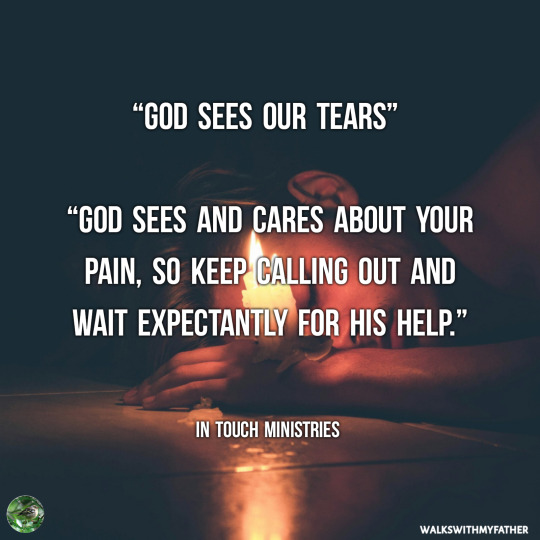
1 Samuel 1:10-20 (NIV) “In her deep anguish Hannah prayed to the Lord, weeping bitterly. And she made a vow, saying, “Lord Almighty, if you will only look on your servant’s misery and remember me, and not forget your servant but give her a son, then I will give him to the Lord for all the days of his life, and no razor will ever be used on his head.” As she kept on praying to the Lord, Eli observed her mouth. Hannah was praying in her heart, and her lips were moving but her voice was not heard. Eli thought she was drunk and said to her, “How long are you going to stay drunk? Put away your wine.” “Not so, my lord,” Hannah replied, “I am a woman who is deeply troubled. I have not been drinking wine or beer; I was pouring out my soul to the Lord. Do not take your servant for a wicked woman; I have been praying here out of my great anguish and grief.” Eli answered, “Go in peace, and may the God of Israel grant you what you have asked of him.” She said, “May your servant find favor in your eyes.” Then she went her way and ate something, and her face was no longer downcast. Early the next morning they arose and worshiped before the Lord and then went back to their home at Ramah. Elkanah made love to his wife Hannah, and the Lord remembered her. So in the course of time Hannah became pregnant and gave birth to a son. She named him Samuel, saying, “Because I asked the Lord for him.”
“God Sees Our Tears” by In Touch Ministries:
“God sees and cares about your pain, so keep calling out and wait expectantly for His help.”
“When we are in pain, it can be easy to cut ourselves off from those who care about us most—including the Lord. Yet Hannah, even in her heartache and disappointment over not having a child, continued to turn to God. First Samuel 1:19 tells us that the day after Hannah wept bitterly before Him, “the Lord remembered her.” She had faith in His goodness and believed He would respond to her request. She invited God to meet her in the middle of her pain—and He did. Later, when she delivered her son, Hannah gave him a name born out of both the pain and redemption of her experience: Samuel, meaning “God hears.”
Seeing God’s direct answer to her prayer provided Hannah with the faith to give back to God what she desired most: her only son. Hannah’s example shows us that engaging with God in faith requires open hands—both to receive and to surrender. Whether we receive the object of our desire or not, the promise of God’s presence is the greatest gift He gives, and it will never be taken from us. God sees and cares about every tear that falls. Through Hannah’s story of supplication and surrender, we find that even tears sown in bitterness can become seeds of redemption.”
(Photo by Fernando @cferdophotography at Unsplash)
#1 samuel 1:10-20#god loves you#bible verses#bible truths#bible scriptures#bible quotes#bible study#studying the bible#the word of god#christian devotionals#daily devotions#bible#christian blog#god#belief in god#faith in god#jesus#belief in jesus#faith in jesus#christian prayer#christian life#christian living#christian faith#christian inspiration#christian encouragement#christian motivation#christianity#christian quotes#in touch ministries#keep the faith
40 notes
·
View notes
Text

Saint Hannah, Mother of Samuel
12 C. BC
Feast Day: December 9
Patronage: Childless and infertile women, and poverty
Saint Hannah is an Old Testament (1st Book of Samuel) wife, whose marriage to Elkanah was barren. Even though Elkanah loved her dearly, he married Peninnah, who bore him many children. Hannah grieved bitterly and prayed fervently in the temple over her misfortune. The priest Eli learned of her story, gave her a blessing and she conceived and bore Samuel. (meaning; Asked from God, or God heard) Samuel served Eli and became one of the greatest of the Judges in the Old Testament.
Prints, plaques & holy cards available for purchase here: (website)
55 notes
·
View notes
Text
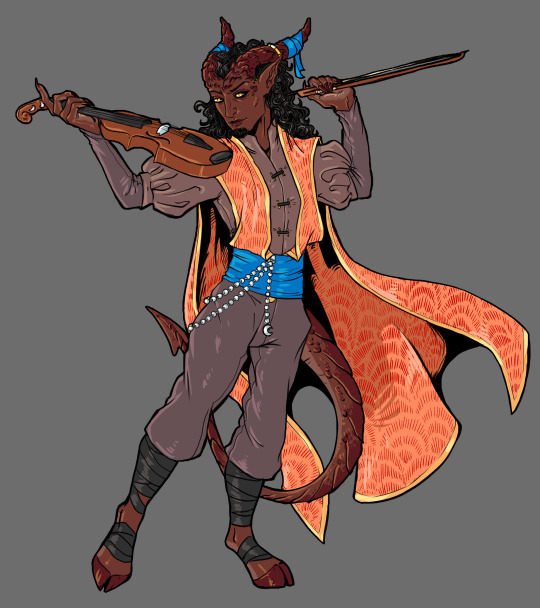
I reworked Cedric! His story is almost the same as it used to be, but I changed some small things and I also gave his character a bit more nuance. He seemed a little bit empty before.
I of course also reworked his design. I really felt that his old look was simply too... simple? I don't know, thats the only way I can describe most of my old designs. Back then I had like a specific look that I basically gave most characters and I wanted to change that for him. The current design is still fairly simple in it's shapes but I like it much more. (the usual colourful bard designs like I gave Elkanah for example just don't work that well with Cedric, I feel)
81 notes
·
View notes
Text
Pouring Out My Soul
MEMORY VERSE OF THE WEEK
=========================
+ Philippians 1:9 And this is my prayer: that your love may abound more and more in knowledge and depth of insight,
=========================
VERSE OF THE DAY
========================
+ 1 Samuel 1:15 But Hannah answered, “No, my Lord, I am a woman troubled in spirit. I have drunk neither wine nor strong drink, but I have been pouring out my soul before the Lord.
=========================
** SAY THIS BEFORE YOU READ; HERE’S SOME CHRISTIAN TRUTHS **
I AM LOVING GOD
I AM YIELDING
I AM CONFIDENT IN GOD
I AM MOVING MOUNTAINS
********************************
THOUGHTS:
=======================
The phrase or wording we are going to look at is pouring out my heart to the Lord; it's easy to do to say the words, to say, Lord, this is what I need, or Lord, this is what I'm dealing with but to pour out our heart is leaving all our emotions to him, and that's what Hannah did or was doing she was upset, she was frustrated and bitter. That is a lot of emotions; she was angry because she was married to a man named Elkanah, and he had another wife who could have children, but she couldn't.
“Verse 6 tells us this: Peninnah would taunt Hannah and make fun of her because the Lord had kept her from having children.”
She was taunted because she didn't have any children, and this was a huge burden for her because she wanted them, but she couldn't have them. A lot of times, we can want something so badly, and it never comes to pass because it's not the right time. We can think our lives will go one way, and they will go the opposite way.
Do we believe entirely in what we say because it's so easy to say I believe in God and don’t truly believe , or it's so easy to give encouraging words, but when it's our time to lean on those words, do we, the Lord, want us to cast our cares on him meaning to fling them on him, to leave them to him its a command, and when we do this we are constantly communicating with God which is doing what the word is telling us to do which is pray constantly. Some of us only do this when we think of God or have a problem. Some of us do this when we want something, but we should always pray to him and give him our problems.
Verse 11, and she made this vow: “O Lord of Heaven’s Armies, if you will look upon my sorrow and answer my prayer and give me a son, then I will give him back to you. He will be yours for his entire lifetime, and as a sign that he has been dedicated to the Lord, his hair will never be cut.”
Hannah went to God and said hey, if you give me a son, I will give him back to you. I won't keep him, but I will give him to you. Some people we have noticed in the Bible go back on their vow to they have given to God, but not Hannah; she gave her child back to God; we have to be willing to believe that he’ll take care of us; we have to believe that he's a God that sees and knows our every need. Wanting something and needing something is different some times when we want something we might not get it. Still, when it’s a need, he’ll see it.
He’ll give us what we desire according to his riches and glory and what he thinks we need. People tend to get mad at God for not giving them everything, but God sees that if he gives us certain things, we will be disconnected from him, or he knows exactly what we will do. God knew Hannah would do the right thing.
Verse 16-17: Don’t think I am a wicked woman! For I have been praying out of great anguish and sorrow.”17 “In that case,” Eli said, “go in peace! May the God of Israel grant the request you have asked of him.”
Hannah says to Eli I’m not a wicked woman. I have been praying to God with great anguish and sorrow, and Eli said, well, go in peace, just like that, go in peace, and that's what we must do when we pray , we must go away, leaving the throne of grace, knowing he's going to handle it in his way, and in his way might not be what we want. Still, it's his perfect will. Do you trust in God to do things his way? Do you trust God to handle it all?
We don’t believe he can do it the way we want, and it often won't happen the way we want. Still, we have to trust that whatever he has planned for our life, we are going to be alright, and that's the part we have to know we will be alright; God got us in his hands, and God got us where he wants us ,it's up to us to follow the path he has for us, we can't sit and be in distress and say I trust in God and we can pick our situations right back up, we must continue to take it off or cast it upon God .
***Today we learn that if we continue to cast our cares upon God we are building trust in God and relying on his infinite power to do what we need, we have to be like Hannah and allow God to hear us and go to him and pour out your heart unto him, because he’s always waiting and watching for us to come to him. Go to God in confidence knowing he loves you and he will hear you when you speak.©Seer~ Prophetess Lee
========================
PRAYER
========================
Heavenly Father, thank you for everything; thank you for life, health, and strength, Father. We give you everything just like Hannah; we ask you to give us faith so strong and help us focus on you daily. Lord, we believe in you for everything, and we thank you. Lord, we give you glory and honor. Help us to pray to you continuously, Lord. We want to have a bond so strong with you. We love you and thank you for your mercy and grace. Lord, we trust in you no matter how big our situation is. In Jesus' Name, Amen.
========================
REFERENCES
========================
+ Isaiah 44:3 For I will pour water on the thirsty land, and streams on the dry ground; I will pour my Spirit upon your offspring, and my blessing on your descendants.
+Acts 1:8 But you will receive power when the Holy Spirit has come upon you, and you will be my witnesses in Jerusalem and in all Judea and Samaria, and to the end of the earth.”
+ Proverbs 1:23 If you turn at my reproof, behold, I will pour out my spirit to you; I will make my words known to you.
========================
FURTHER READINGS
=========================
PROVERBS 7
JOHN 14
1 JOHN 2
NUMBERS 15
=========================
#bible#bible quotes#christian quote#daily devotion#daily devotional#inspiration#scripture#bible verse#christian life#christan life
2 notes
·
View notes
Text
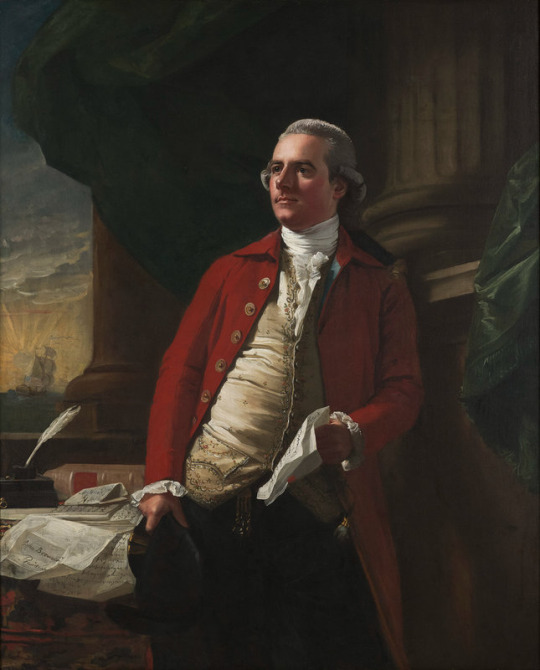
John Singleton Copley (American, 1738 – 1815), “Elkanah Watson,” 1782.
Oil on canvas
Courtesy Alain Truong
17 notes
·
View notes
Text

9th January >> Mass Readings (USA)
Tuesday, First Week in Ordinary Time
(Liturgical Colour: Green: B (2))
First Reading
1 Samuel 1:9-20
The Lord God remembered Hannah, and she gave birth to Samuel.
Hannah rose after a meal at Shiloh, and presented herself before the LORD; at the time, Eli the priest was sitting on a chair near the doorpost of the LORD’s temple. In her bitterness she prayed to the LORD, weeping copiously, and she made a vow, promising: “O LORD of hosts, if you look with pity on the misery of your handmaid, if you remember me and do not forget me, if you give your handmaid a male child, I will give him to the LORD for as long as he lives; neither wine nor liquor shall he drink, and no razor shall ever touch his head.” As she remained long at prayer before the LORD, Eli watched her mouth, for Hannah was praying silently; though her lips were moving, her voice could not be heard. Eli, thinking her drunk, said to her, “How long will you make a drunken show of yourself? Sober up from your wine!” “It isn’t that, my lord,” Hannah answered. “I am an unhappy woman. I have had neither wine nor liquor; I was only pouring out my troubles to the LORD. Do not think your handmaid a ne’er-do-well; my prayer has been prompted by my deep sorrow and misery.” Eli said, “Go in peace, and may the God of Israel grant you what you have asked of him.” She replied, “Think kindly of your maidservant,” and left. She went to her quarters, ate and drank with her husband, and no longer appeared downcast. Early the next morning they worshiped before the LORD, and then returned to their home in Ramah.
When Elkanah had relations with his wife Hannah, the LORD remembered her. She conceived, and at the end of her term bore a son whom she called Samuel, since she had asked the LORD for him.
The Word of the Lord
R/ Thanks be to God.
Responsorial Psalm
Psalm 1 Samuel 2:1, 4-5, 6-7, 8abcd
R/ My heart exults in the Lord, my Savior.
“My heart exults in the LORD,
my horn is exalted in my God.
I have swallowed up my enemies;
I rejoice in my victory.”
R/ My heart exults in the Lord, my Savior.
“The bows of the mighty are broken,
while the tottering gird on strength.
The well-fed hire themselves out for bread,
while the hungry batten on spoil.
The barren wife bears seven sons,
while the mother of many languishes.”
R/ My heart exults in the Lord, my Savior.
“The LORD puts to death and gives life;
he casts down to the nether world;
he raises up again.
The LORD makes poor and makes rich;
he humbles, he also exalts.”
R/ My heart exults in the Lord, my Savior.
“He raises the needy from the dust;
from the dung heap he lifts up the poor,
To seat them with nobles
and make a glorious throne their heritage.”
Gospel Acclamation
cf. 1 Thessalonians 2:13
Alleluia, alleluia.
Receive the word of God, not as the word of men,
but as it truly is, the word of God.
Alleluia, alleluia.
Gospel
Mark 1:21-28
Jesus taught them as one having authority.
Jesus came to Capernaum with his followers, and on the sabbath he entered the synagogue and taught. The people were astonished at his teaching, for he taught them as one having authority and not as the scribes. In their synagogue was a man with an unclean spirit; he cried out, “What have you to do with us, Jesus of Nazareth? Have you come to destroy us? I know who you are–the Holy One of God!”
Jesus rebuked him and said, “Quiet! Come out of him!” The unclean spirit convulsed him and with a loud cry came out of him. All were amazed and asked one another, “What is this? A new teaching with authority. He commands even the unclean spirits and they obey him.” His fame spread everywhere throughout the whole region of Galilee.
The Gospel of the Lord
R/ Praise to you, Lord Jesus Christ.
2 notes
·
View notes
Text
1 There was a certain man of Ramathaim-zophim of the hill country of Ephraim whose name was Elkanah the son of Jeroham, son of Elihu, son of Tohu, son of Zuph, an Ephrathite. 2 He had two wives. The name of the one was Hannah, and the name of the other, Peninnah. And Peninnah had children, but Hannah had no children.
3 Now this man used to go up year by year from his city to worship and to…
View On WordPress
#1 Samuel#1 Samuel 1#barrenness#Eli#Elkanah#Hannah#Hophni#Israel#Judges#kings#Kohathites#Levites#obedience#Peninnah#Phinehas#Samuel#Shiloh#sin#Tabernacle#the will of God
0 notes
Photo
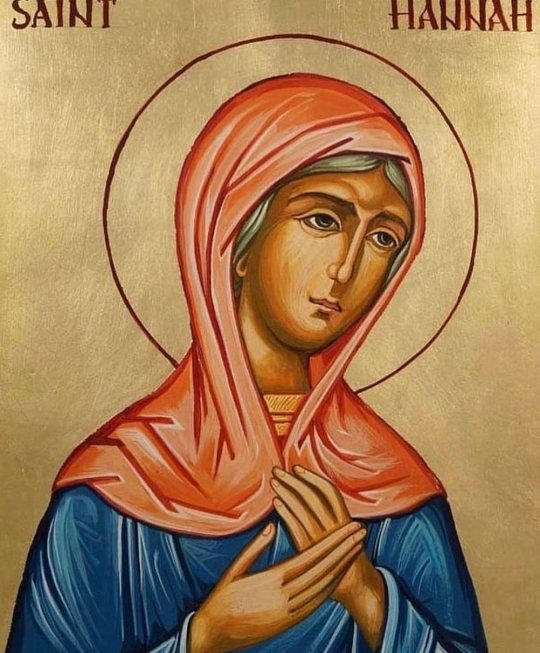
Today we also celebrate the Holy and Righteous Prophetess Hannah, mother of the Prophet Samuel. Saint Hannah dwelt in marriage with Elkanah, but she was childless. Elkanah took to himself another wife, Phennena, who bore him children. Hannah grieved strongly over her misfortune, and every day she prayed for an end to her barrenness, and vowed to dedicate her child to God. Once, as she prayed fervently in the Temple, the priest Heli thought that she was drunk, and he began to reproach her. But the saint poured out her grief, and after she received a blessing, she returned home. After this Hannah conceived and gave birth to a son, whom she named Samuel (which means “Asked from God”). When the child reached the age of boyhood, the mother herself presented him to the priest Heli, and Samuel remained with him to serve before the Tabernacle (1 Kings/1 Samuel 2: 1-21). May she intercede for us always + Source: https://www.oca.org/saints/lives/2019/12/09/103507-prophetess-hannah-the-mother-of-the-prophet-samuel (at Nabi Samwil) https://www.instagram.com/p/Cl6zVCVLB7y/?igshid=NGJjMDIxMWI=
16 notes
·
View notes
Text
Saints&Reading: Thursday, December 22, 2022
december 22_december 9
THE CONCEPTION BY SAINT ANNA, OF "WHENCE IS CONCEIVED THE HOLY MOTHER OF GOD"
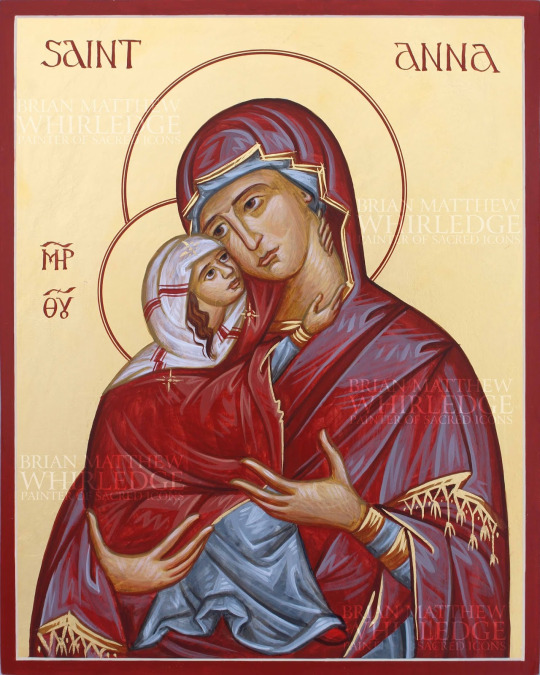
Saint Anna, the mother of the Virgin Mary, was the youngest daughter of the priest Nathan from Bethlehem, descended from the tribe of Levi. She married Saint Joachim (September 9), who was a native of Galilee.
For a long time Saint Anna was childless, but after twenty years, through the fervent prayer of both spouses, an angel of the Lord announced to them that they would be the parents of a daughter, Who would bring blessings to the whole human race.
The Orthodox Church does not accept the teaching that the Mother of God was exempted from the consequences of ancestral sin (death, corruption, sin, etc.) at the moment of her conception by virtue of the future merits of Her Son. Only Christ was born perfectly holy and sinless, as Saint Ambrose of Milan teaches in Chapter Two of his Commentary on Luke. The Holy Virgin was like everyone else in Her mortality, and in being subject to temptation, although She committed no personal sins. She was not a deified creature removed from the rest of humanity. If this were the case, She would not have been truly human, and the nature that Christ took from Her would not have been truly human either. If Christ does not truly share our human nature, then the possibility of our salvation is in doubt.
The Conception of the Virgin Mary by Saint Anna took place at Jerusalem. The many icons depicting the Conception by Saint Anna show the Most Holy Theotokos trampling the serpent underfoot.
“In the icon Saints Joachim and Anna are usually depicted with hands folded in prayer; their eyes are also directed upward and they contemplate the Mother of God, Who stands in the air with outstretched hands; under Her feet is an orb encircled by a serpent (symbolizing the devil), which strives to conquer all the universe by its power.”
There are also icons in which Saint Anna holds the Most Holy Virgin on her left arm as an infant. On Saint Anna’s face is a look of reverence. A large ancient icon, painted on canvas, is located in the village of Minkovetsa in the Dubensk district of Volhynia diocese. From ancient times this Feast was especially venerated by pregnant women in Russia.
THE HOLY PROPHETESS HANNAH MOTHER OF THE PROPHET SAMUEL (1100 BC)
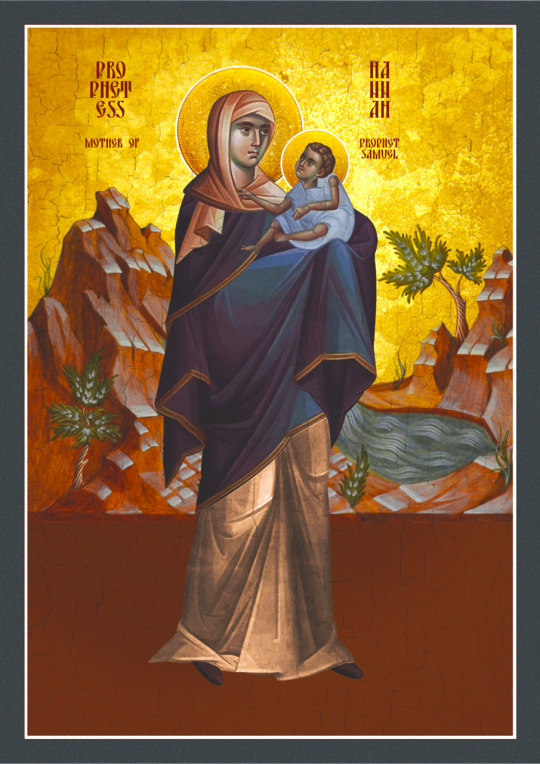
icon from Uncut Mountain supply
The Holy Prophetess Hannah dwelt in marriage with Elkanah, but she was childless. Elkanah took to himself another wife, Phennena, who bore him children. Hannah grieved strongly over her misfortune, and every day she prayed for an end to her barrenness, and vowed to dedicate her child to God.
Once, as she prayed fervently in the Temple, the priest Heli thought that she was drunk, and he began to reproach her. But the saint poured out her grief, and after she received a blessing, she returned home. After this Hannah conceived and gave birth to a son, whom she named Samuel (which means “Asked from God”).
When the child reached the age of boyhood, the mother herself presented him to the priest Heli, and Samuel remained with him to serve before the Tabernacle (1 Kings/1 Samuel 2: 1-21).
Source all texts: Orthodox Church in America

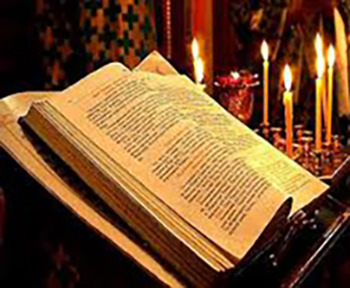
LUKE 21:28-33
28 Now when these things begin to happen, look up and lift up your heads, because your redemption draws near. 29 Then He spoke to them a parable: "Look at the fig tree, and all the trees. 30 When they are already budding, you see and know for yourselves that summer is now near. 31 So you also, when you see these things happening, know that the kingdom of God is near. 32 Assuredly, I say to you, this generation will by no means pass away till all things take place. 33 Heaven and earth will pass away, but My words will by no means pass away.
GALATIANS 4:22-31
22For it is written that Abraham had two sons: the one by a bondwoman, the other by a freewoman. 23 But he who was of the bondwoman was born according to the flesh, and he of the freewoman through promise, 24 which things are symbolic. For these are the two covenants: the one from Mount Sinai which gives birth to bondage, which is Hagar- 25 or this Hagar is Mount Sinai in Arabia, and corresponds to Jerusalem which now is, and is in bondage with her children- 26 but the Jerusalem above is free, which is the mother of us all. 27 For it is written: "Rejoice, O barren, You who do not bear! Break forth and shout, You who are not in labor! For the desolate has many more children Than she who has a husband." 28 Now we, brethren, as Isaac was, are children of promise. 29 But, as he who was born according to the flesh then persecuted him who was born according to the Spirit, even so it is now. 30 Nevertheless what does the Scripture say? "Cast out the bondwoman and her son, for the son of the bondwoman shall not be heir with the son of the freewoman." 31 So then, brethren, we are not children of the bondwoman but of the free.
Commentary of the Church Fathers
St John Chrysostom AD 407: What is the meaning of after the flesh? Having said that Faith united us to Abraham, and it having seemed incredible to his hearers, that those who were not begotten by Abraham should be called his sons, he proves that this paradox had actually happened long ago; for that Isaac, born not according to the order of nature, nor the law of marriage, nor the power of the flesh, was yet truly his own son. He was the issue of bodies that were dead, and of a womb that was dead; his conception was not by the flesh, nor his birth by the seed, for the womb was dead both through age and barrenness, but the Word of God fashioned Him. Not so in the case of the bondman; He came by virtue of the laws of nature, and after the manner of marriage. Nevertheless, he that was not according to the flesh was more honorable than he that was born after the flesh. Therefore let it not disturb you that you are not born after the flesh; for from the very reason that you are not so born, are you most of all Abraham's kindred. The being born after the flesh renders one not more honorable, but less so, for a birth not after the flesh is more marvellous and more spiritual. And this is plain from the case of those who were born of old time; Ishmael, for instance, who was born according to the flesh, was not only a bondman, but was cast out of his father's house; but Isaac, who was born according to the promise, being a true son and free, was lord of all.
#orthodoxy#orthodoxchristianity#easternorthodoxchurch#originofchristianity#spirituality#holyscriptures#gospel#bible#wisdom
11 notes
·
View notes